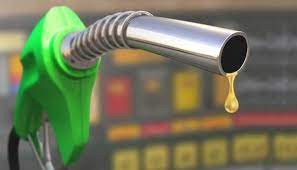Nigeria’s crude oil production slid to 972 thousand barrels per day (tb/d) in August 2022, dropping by 112 tb/d as crude oil theft cause a massive erosion of the country’s production capacity, weighing on the nation’s oil revenue.
This is according to the OPEC Monthly Oil Market Report (MOMR) – September 2022.
The Organization of Petroleum Exporting Countries (OPEC), expects world oil demand growth to remain unchanged from the previous month’s evaluation of 3.1 mb/d for 2022, due to the recently observed swing for additional oil demand growth as fuel switching in power generation takes the stage. The international organization projects a 1.6 mb/d oil demand growth in 2022 in the OECD, while non-OECD growth is estimated at 1.5 mb/d.
Despite OPEC’s consistently strong crude oil demand projections, Nigeria’s production has been taking a downturn. Crude oil production in Nigeria fell from about 1.4 million barrels per day (mb/d) to 1.3 mb/d at the beginning of 2021. It further dropped to 1.2mb/d in Q1 2022 and is now a staggering 972 tb/d.
By 2023, world oil demand growth is estimated to remain stable at the previous month’s 2.7 mb/d forecasts as positive economic performance in major consuming countries, anticipated improvements in COVID-19 restrictions and reduced geopolitical tensions are expected to support oil demand. The OECD is expected to tick up slightly by 0.6 mb/d and the non-OECD by 2.1 mb/d.
OPEC also stated that the recovery in transportation and firm industrial fuel demand, including petrochemical is expected to drive oil demand growth in the non-OECD, with China and India having the largest growth demand. It noted that “Other regions such as Other Asia, Latin America, and the Middle East are also expected to see decent gains, supported by a positive economic outlook. In terms of fuels, gasoline and diesel are assumed to lead oil demand growth next year.”
In 2023, expectations for healthy global economic growth, combined with anticipated improvements in the containment of COVID-19 in China, are expected to boost oil consumption. The demand outlook for 2023 remains at 2.7 mb/d, unchanged from the last MOMR, and reaches 102.73 mb/d.
Supply Side
In August, crude oil production by OPEC-13 increased by 618 tb/d m-o-m to average 29.65 mb/d, according to the secondary sources available to OPEC.
Meanwhile, the share of OPEC crude oil in total global production increased to 29.3% in August compared with the previous month’s 28.7%.
An increase to 29.3% contribution to global production by OPEC-13 coming after a decline the previous month, though not very significant, is still commendable given the economic realities that affect the market.
What you should know
The OPEC monthly oil market report suggests a still strong oil demand growth for the rest of 2022 and the demand is expected to stabilize in 2023. This represents an opportunity for a windfall gain for Nigeria if it can mop up the problem of oil theft that has been a serious impediment to the nation’s oil sector.
Additionally, a complete shut-off of Russian gas to Europe will significantly raise Nigeria’s revenue as Europe is seeking an alternative supply for Kremlin’s gas. Nigeria’s Minister of State Petroleum Resources, Mr. Sylva Timipre has also disclosed Nigeria’s plan to commercialize gas flaring; a move that will add up to $1 billion to government annual revenue.










